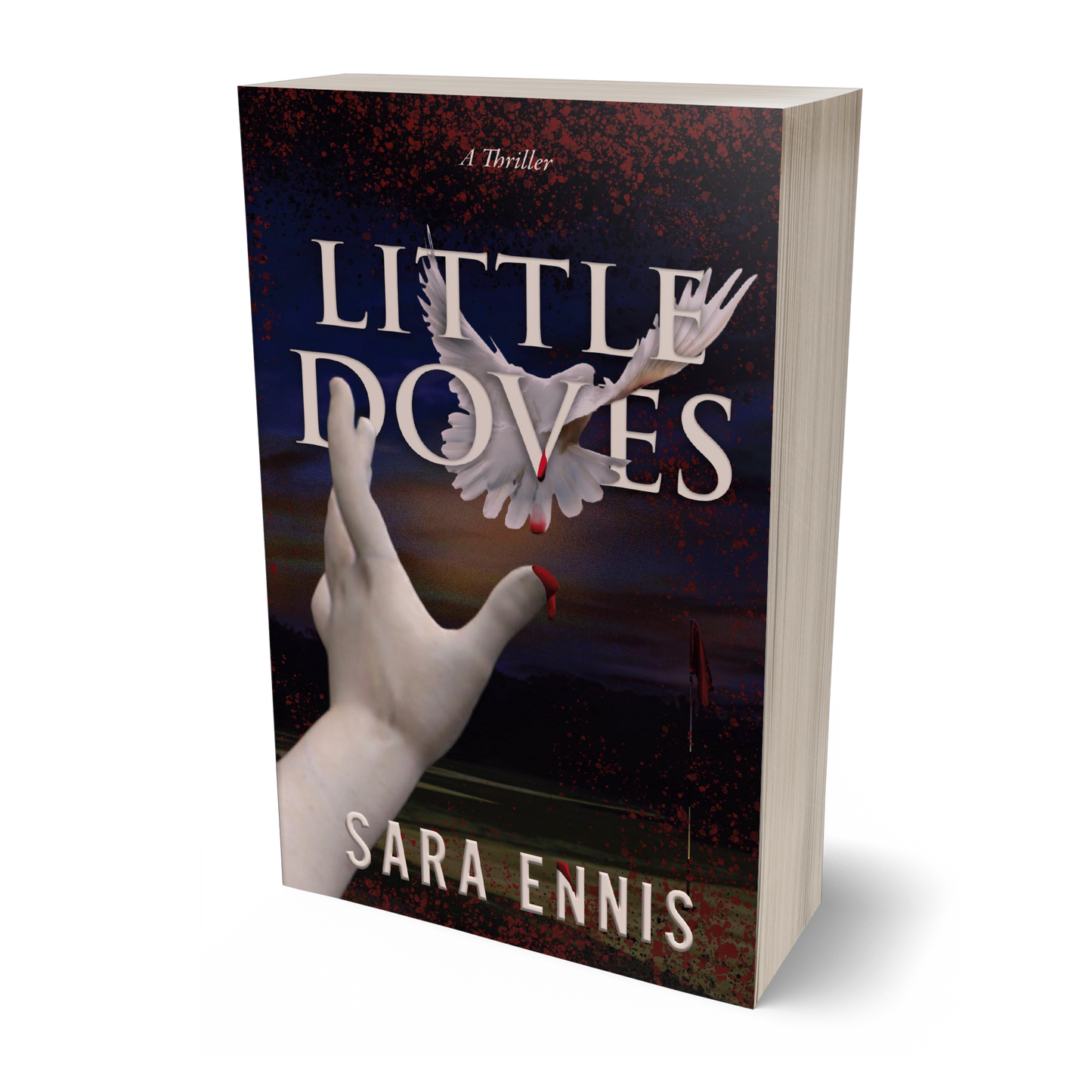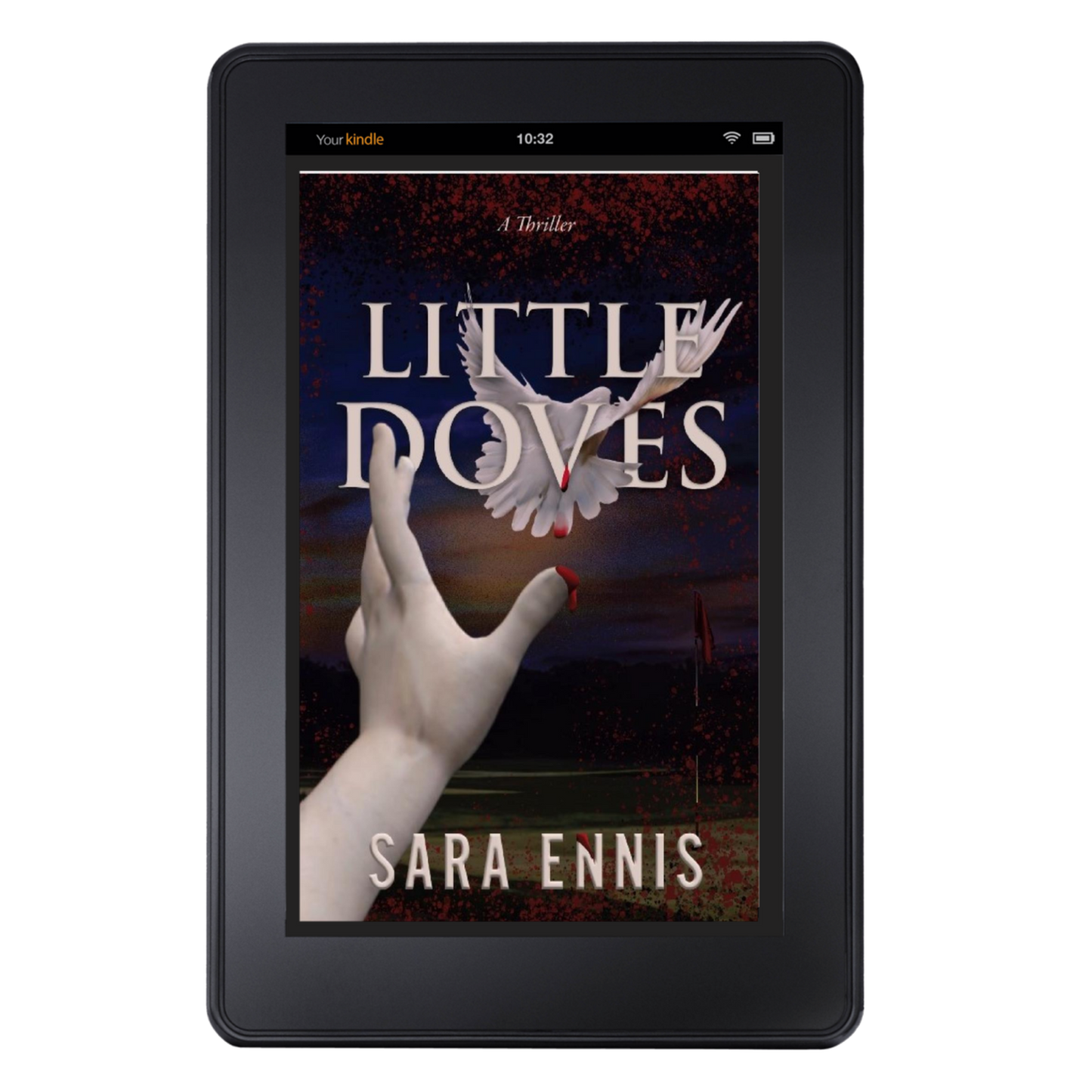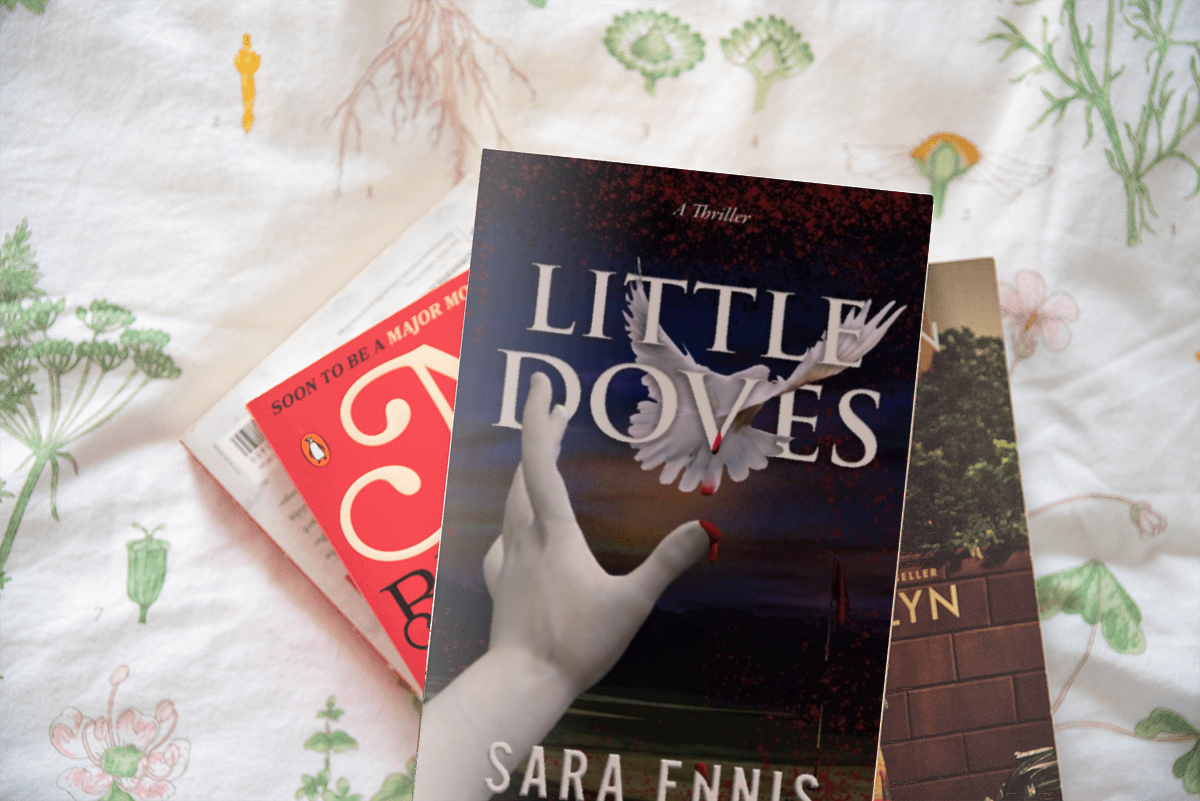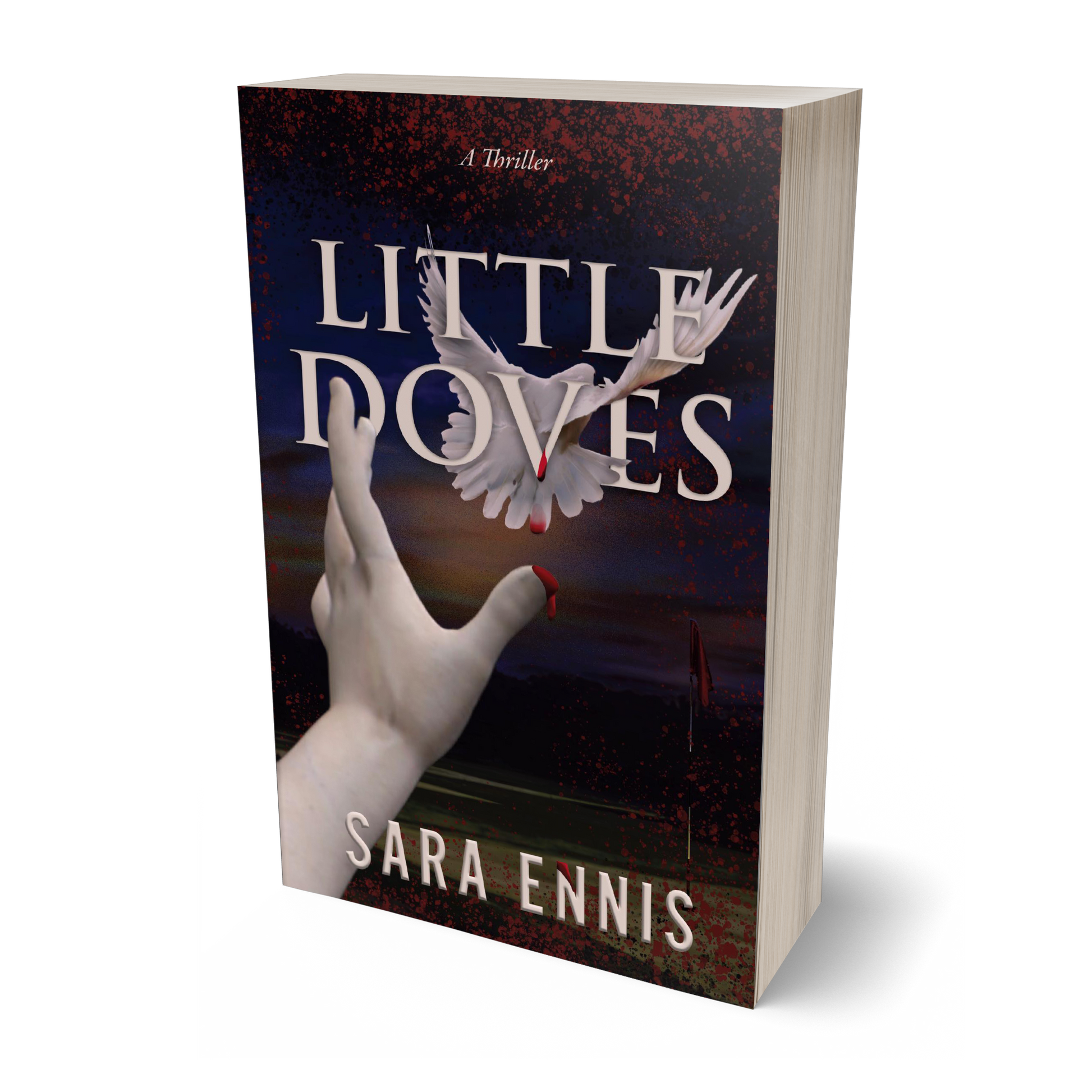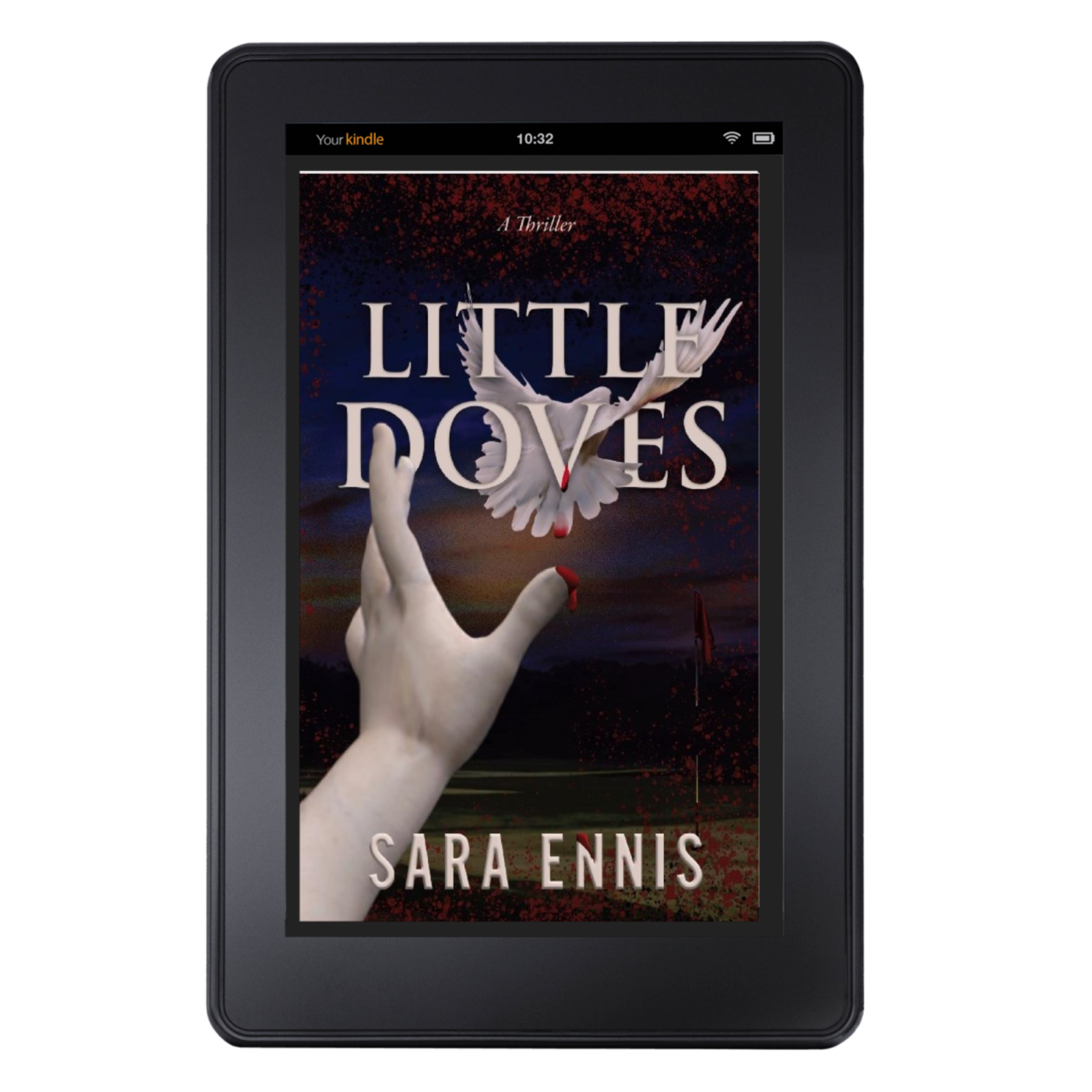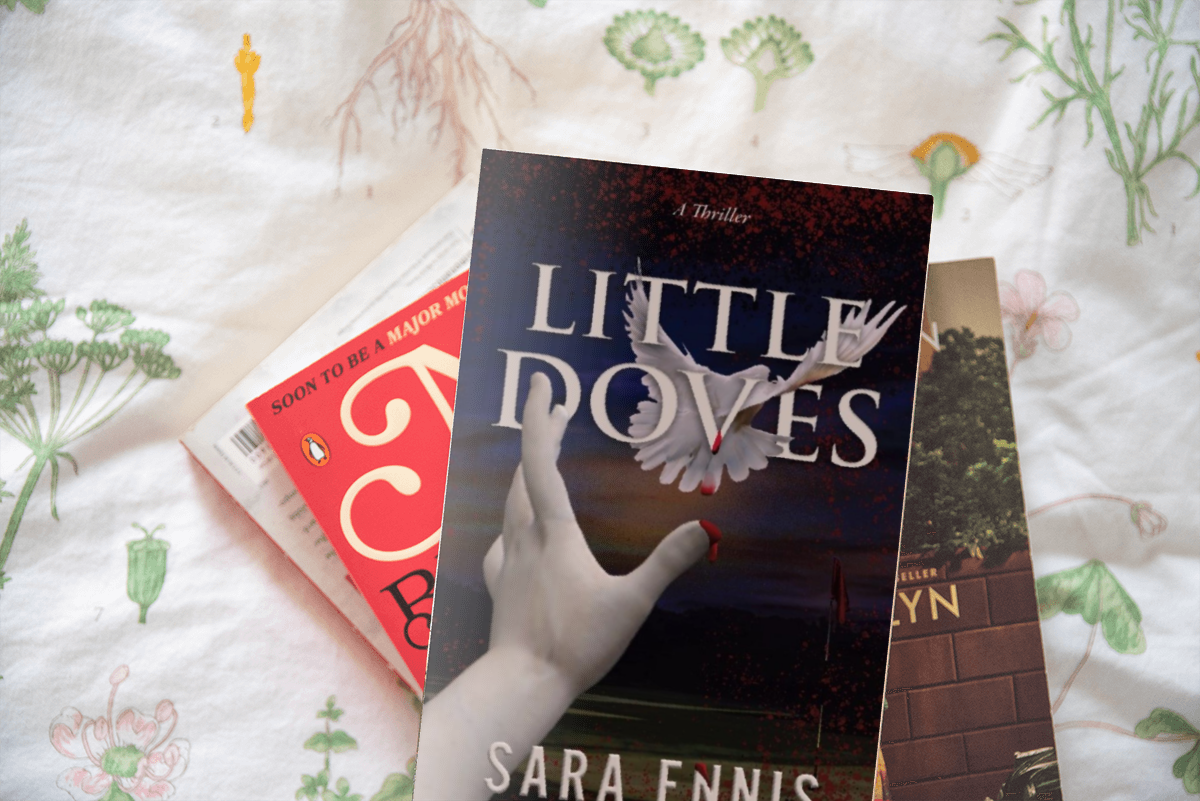BookVault
Little Doves (paperback)
Little Doves (paperback)
Couldn't load pickup availability
Share
This is the Paperback. If you prefer an E-Book, click here.
Hear no evil, speak no evil, see no evil – or pay the consequences.
789 5-star reviews!
Inspired by Jeffrey Epstein and friends.
Twenty years ago, Stasia King’s 14-year-old sister was abducted, raped and viciously murdered. Now, on the anniversary of her disappearance, another young girl has gone missing, from the same exclusive country club. The cases can’t possibly be connected since the murderer has been dead nearly twenty years – or can they? Is it coincidence or something more sinister?
Nick Winston is in town to investigate the girl’s disappearance, but he’s drawn to a second case that’s grabbing global attention: Someone calling themselves The Surgeon is attacking pillars of the community men in very specific ways. The Surgeon isn’t hiding in the shadows; they record the attacks and post them on social media, with an invitation to watch as the assaults become more violent, and more final. They’re sending a message, and demanding justice with a cryptic tagline: #stopsabine.
Is The Surgeon a vigilante, or a brutal killer?
| Paperback | 286 pages |
| Dimensions |
5.5 x 0.72 x 8.5 inches |
READ A SAMPLE
READ A SAMPLE
CHAPTER 1
DAY 0
STASIA
I’d bet a thousand dollars none of my coworkers or patients have a clue Dr. Stasia King is having a shitty day. Not the man who fell down the stairs of his brownstone, not the little girl having a severe asthma attack, not the woman miscarrying a child she hadn’t known existed. I saw nearly forty patients during my nine-hour shift, and I can confidently say none of them were aware of my sadness.
Every year around this date I wonder how it’s possible that life goes on as if nothing happened, nothing changed. If there is justice, the world should pause in honor of Natasha King’s short life. There should be no music. No laughter. No children giggling. Everything and everyone should recognize the terrible anniversary of my sister’s death.
That’s what my heart says. Intellectually, I know tomorrow will be the same as any other day. The world will continue spinning, people will fall in love, puppies will romp, joy will be had. And as I’ve done each year for the last twenty years, I will try to carry on as if my heart isn’t broken, my soul freshly torn.
The emergency room will still be full of people who need help, and I will give them care to the best of my ability. I’ll hit the gym before my morning shift, as I do every day. Officially, I could go home at seven, except my calendar reminds me there’s a birthday celebration at the Happy Amigos. Dreaded anniversary or not, I would never miss a nurse’s birthday. I make it a point to be there for the important stuff; you never know when it will be the last time you see someone.
Besides, as a shrink advised me many years ago, living in the now can help keep my mind off things. Things like the memory of Mama’s panicked face when she got home from work and realized that even though it was nearly dark, her fourteen-year-old daughter wasn’t on the couch watching TV. Or my father’s blank, beer-glazed stare when Mama asked why he hadn’t called Tasha’s boss, her friends, or the police. Or the two uniformed patrol officers who eventually arrived to ask stupid, irrelevant questions. “Did you have a fight?” “Fourteen-year-old girls are emotional. Has she run away before?” “Does she have a boyfriend? A girlfriend?” No, no, no.
Maybe tequila will keep my mind off the next day when volunteers walked our neighborhood, looking for any signs of the smiling girl whose face was printed on hundreds of flyers. The flyers made Natasha King seem very one-dimensional. She was so much more than that. She just hadn’t had time to fully blossom into her potential.
I hate that photo. That flyer. And it never leaves the back of my mind. Every time I meet a stranger—and being an ER doc, I meet a lot of strangers—my weird little brain puts their face next to Tasha’s. It’s not like she’s missing. She’s not going to turn up in my emergency room needing a tetanus shot. I don’t know why I do it. But I can’t stop.
Maybe nachos will keep me from thinking about the reporters who showed up out of obligation rather than actual interest. And the second day, when Mama and Dad had a huge fight, which turned out to be the beginning of their end.
I know nothing will keep my mind off the fourteen days between when she went missing, and the day she was found.
Honestly, it feels like this should all be easier by now. Twenty years have flown by. Plenty of time to “get over it.” Yet here I am, still waiting for the hurt to fade from sharp, unexpected jabs to a persistent dull ache.
Instead of living a full life, I’m curled up on the sofa in my condo with the small TV on for company. Not for the first time, I recognize how bland my life is. Although my living room is beautiful with its white walls, dark wood floor, and historic built-ins surrounding the plaster fireplace, the few items in the room are strictly functional: a gray couch, a basic faux oak build-it-yourself entertainment cabinet, and a matching square coffee table. There is no wood in the fireplace. There are no flowers, no art, no color.
The small but functional kitchen is equally dull. Boxes of cereal and pasta, canned tomatoes, tuna, and soup take up less than half a shelf in one cabinet. The others are mostly empty except for four plates, four bowls, four glasses, and a couple pots and pans. There are four of each because that’s how they’re sold at Target. I don’t need four. I’ve never had company, not even Mama.
A gray bathmat and coordinating towels break up the white in the bathroom. They, too, were sold as a set, along with a matching plastic garbage can.
The smaller of the two bedrooms is my office, with a cheap desk and chair, my laptop, and a collection of medical texts. Everything is organized and put away. It looks like a photo in a catalogue rather than a real human’s space.
The sheer white drapes at each window were here when I bought the place. If I’m honest, there was more style and personality when the realtor staged the apartment years ago.
The only hobby I have is rollerblading, limited by time and weather. I don’t volunteer. I don’t date. I rarely socialize with colleagues. Even working 60 to 80 hours a week, there are gaps that need to be filled, and for me, books fill the need. They’re my friends, my lovers, my therapist. Since I read on my tablet or listen to audio, there aren’t even colorful books on the bookshelf.
I’m aware I’m a very boring human being. The only place I come alive, and allow myself to feel, is at the hospital. I’m good at my job. Not just the medicine part, but the people and the organization.
It’s after midnight, and I have to be up early. I should go to bed, try for sleep. Instead, I stay tucked into the sofa, stroking the sterling silver ballerina pendant that hangs from my neck as I try to focus on a documentary on the wildlife of South America.
What would twelve-year-old Stasia—Anastasia, to Mama, and no one else—think of thirty-four-year-old Stasia? Without a DNA test, it would be hard to prove we’re the same person. Young Stasia dreamed of being a landscape architect, making the world beautiful and tackling environmental challenges. Grown-up Stasia is a doctor, exhausted by and thriving in the chaotic world of emergency medicine. Young Stasia was social, although never cool. She had friends and enjoyed meeting new people. She loved noise, and color, and adventure. Adult Stasia works hard simply to exist in the world around her.
The fact is the person who obliterated Natasha King obliterated me, too. That’s a conscious choice rather than a certainty, but I can’t seem to muster the energy to change. Maybe next year.
I open the calendar app again and click the plus sign to add a reminder. “Call Mama.”
My gut rumbles, and I hurry to the bathroom. No surprise that my belly is the barometer of my mental health. Once the contents of my belly are purged, I crawl into bed. And as I have done this time every year, I assure myself our sisterly argument was not a fight.
As I allow myself to be sucked down into anxious sleep, fingers wrapped around the ballerina as she lays on my chest, I hazily think, time travel exists. The problem is, once I’m at my destination, all I can do is watch. I can’t change the past.
My phone pings an email alert. I read the email, then read it again because, surprisingly, it’s good news. It’s not good enough to erase the bad, but it’s good enough.
Each summer, I attend a medical conference. I spend two weeks driving across the country, visiting presidential grave sites and exploring parks and points of interest along the way. In my head it keeps Tasha with me since it’s something we did together when we were kids. I look forward to it. Each year, I try to persuade Mama to come with me. I haven’t been successful yet.
This year, I registered for an emergency medicine conference in Seattle. The conference producers just offered me a seat on a panel. It’s an incredible honor.
There’s a small smile on my lips as I settle in to sleep.
